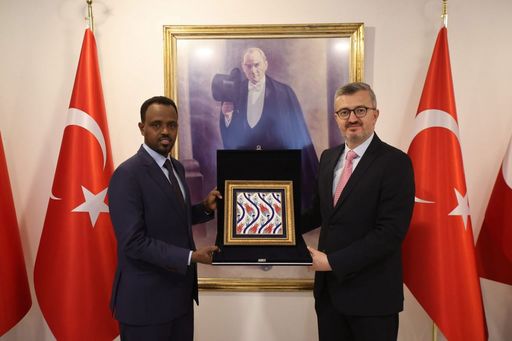Somalia is preparing to become the first African country to launch satellites from its soil, a development few would have predicted for a nation still rebuilding from three decades of civil war.
The $6-billion space partnership with Türkiye comes just 13 years after Somalia formed its federal government, when most international assistance focused on basic security and infrastructure.
Now, a spaceport is under construction along the Indian Ocean coast, with the first launch planned for late 2025.
"Having a satellite launched from Somalia into space is a monumental achievement that represents more than a few billion dollars," Somali President Hassan Sheikh Mohamud says of the plan.
The partnership with Türkiye represents one of the largest foreign investments in Somalia's history and marks a significant shift in both countries' strategic priorities, mainly harnessing the tailwind for an economic and scientific surge.
Geographical advantage
Somalia is positioned just above the equator, straddling the northern and southern hemispheres. Scientifically, this makes it one of the best possible locations on Earth for a rocket lift-off.
Rockets launched from equatorial locations benefit from Earth's maximum rotational velocity –approximately 1,670 kmph – while reducing fuel requirements and increasing payload capacity.
The designated 30×30 km site along Somalia's extensive coastline, the longest in mainland Africa, also provides a clear eastward trajectory over the Indian Ocean under the Horn of Africa's consistently clear skies, ensuring spent rocket stages fall safely away from populated areas.
Win-win alliance
The Somali facility addresses several key objectives in Türkiye's 10-year space roadmap that was announced in 2021, including plans to achieve a hard Moon landing by 2028, build a national Global Navigation Satellite System comparable to GPS, and test long-range missile capabilities.
The site offers Türkiye a low-latitude launch platform outside NATO's operational sphere, providing both political flexibility and the ability to test military payloads alongside civilian satellites.
Turkish President Recep Tayyip Erdoğan reportedly shared the "good news" about preparations for the Somali space base being underway during a closed-door meeting with the ruling AK Party's central executive committee.
Turkish defence officials have since confirmed that the facility will serve as a long-range missile testing facility, supporting the Tayfun and Cenk missile systems designed for extended-range strikes, and making it a rare dual-use installation for both space and defence applications.
From Somalia's standpoint, the spaceport promises never-before economic benefits, including creating jobs across construction, logistics and STEM.
Technology transfer provisions and training programmes written into the agreement aim to develop local expertise in aerospace and allied industries.
"I believe the long-term strategic benefits of this project far outweigh the immediate financial gain. The long-term benefits of this project are immense. The project will be a catalyst for knowledge and innovation, generating new skills, building capacity among our youth, and creating new jobs," says President Mohamud.
"A core component of the agreement is to enhance the knowledge base of young Somalis, thereby paving the way for the emergence of new industries and services."
Somalia's parliament has already approved the project, indicating broad political support despite billions of dollars being at stake.
Regional implications
Türkiye's investment in Somalia is an extension of its African engagement strategy and growing "win-win influence" on the continent.
Turkish presence in the Horn of Africa already ranges from military training missions and port operations to dispensing humanitarian aid. A spaceport in Somalia marks a quantum leap in ambition.
Rather than traditional development assistance, this positions Türkiye as a serious global player in advanced technology and aerospace capabilities.
As construction proceeds at the undisclosed location, the partners couldn't be more eager to reach for the stars.

Both nations are betting big on what seems like an unconventional partnership. Somalia gains access to cutting-edge technology and thousands of jobs, while Türkiye secures an equatorial launch site that meets its requirements.
The countdown to a new era of cooperation has begun.



















